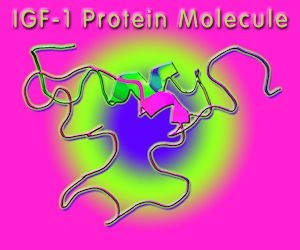Video Link: https://vimeo.com/574281640
Video Download: Low Testosterone Low T Part One
Video Stream: Low Testosterone Low T Part One
Video Link: https://vimeo.com/574280418
Video Download: Low Testosterone Low T Part Two
Video Stream: Low Testosterone Low T Part Two
What is the Hormone Testosterone?
 Testosterone is frequently referred to as the Male Hormone and its deficiency is often diagnosed as hypogonadism.
Testosterone is frequently referred to as the Male Hormone and its deficiency is often diagnosed as hypogonadism.
This is somewhat of a misnomer, but it is true that Testosterone is the androgen hormone that is primarily responsible for the development of male characteristics (but women need it too), and without it, there would be no men at all.
If you are an American living in the USA and think might have low Testosterone call our American HRT Medical Clinic to discuss prescription options, Call: 1-800-469-3343.
Of course, Testosterone is more complicated than it might seem at first, and it is actually acutely important for female health as well, they just don't need nearly as much (women need a fraction).
Testosterone is responsible for the development of both primary and secondary male sexual characteristics. In the womb, it causes the growing fetus to differentiate and create the male sex organs.
Some theories point to hormone imbalances in the womb causing later gender dysphoria.
Testosterone and Puberty
During puberty, Testosterone encourages the young boy to develop into a man. It is responsible for the growth of the male penis and can often cause tenderness in the nipples.
Also, Human Growth Hormone is responsible for the growth spurt that occurs in both boys and girls during this period, but Testosterone encourages boys to grow taller than girls and also encourages further sexual differentiation, including the development of body hair, the deepening of the voice, and the strengthening of the muscles.
Testosterone and Male Health
Many men have this idea that Testosterone is only important because of its influence on male sex drive, muscle development, assertive mindset, and sexual ability, but this is  simply not the case.
simply not the case.
Men need Testosterone for a lot of reasons! Testosterone is the hormone that often defines a male as a man (because men have several factors higher levels of T), and when Testosterone Deficiency becomes problematic, men often experience the equivalent of a reversion into their younger, less virile state and more prone to swings of emotion.
Men with hypogonadism or andropause become more prone to anxiety and passiveness. They lose their muscle strength, bone mineral density, and their interest in sexuality.
They can even experience thinning beard and body hair. This doesn't even get into the underlying issues that Low-T can cause, increasing the risk of obesity and a variety of heart and cardiovascular conditions just to name a few!
One-third of men who have heart attacks have Low T, so there appears to be a correlation, but how much causation is debated amongst doctors and physician-scientists.
The issues with psychology and motivation are so strong that doctors have even given it a name: Grumpy Old Man Syndrome. Testosterone Deficiency causes men to lose that spark that sustains them, that pep in their step and causes them to become agitated, irritated, submissive, and exhausted. That's no way to live!
I Think I May Have Testosterone Deficiency. What Can I Do About It?
Luckily, advances in modern science are a wonderful thing, and there are a wide variety of treatments available designed to treat your Low-T and restore your health and vitality.
Collectively, these products are known as Bio-Identical Testosterone Treatment protocols, and they can change your life! Testosterone products come in many forms, injections, gel, cream, pellets, and even nasal sprays.
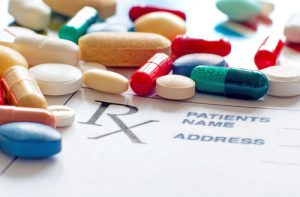 However, be aware that many of the testosterone pills and supplements sold on the internet in tablet or powder form are fake. Only get T through a licensed physician, you can contact our legitimate clinic to talk about your choices.
However, be aware that many of the testosterone pills and supplements sold on the internet in tablet or powder form are fake. Only get T through a licensed physician, you can contact our legitimate clinic to talk about your choices.
Testosterone is integrally important for optimal male physiological and psychological vitality, and for men that aren't producing enough of the vital hormone, Low-T Treatments can allow them to optimize their health, mind-state, and virility in a way that they never thought possible.
Testosterone can help you stay strong, ward off fat, and stay sexually active. Testosterone replenishment to bring clinically declining levels up to the optimized levels can do a world of wonders.
Testosterone can also help you in maintaining sharper focus and cognitive clarity, while also amplifying good mood and positive motivation.
What is Low-T or Andropause?
Andropause and Low-T are trendy terms, regarding men, created to more or less describe the medical condition of Male Hypogonadism that is characterized by clinically low Testosterone production that is associated with a cluster of medical symptoms which deteriorate male health.
The condition is also known by a number of different names, including most commonly Testosterone Deficiency or hypogonadism.
Most commonly, men that experience Low-T experience their symptoms as a result of the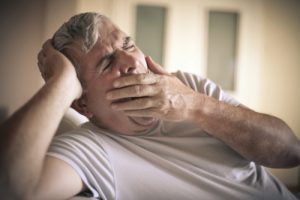 normal aging process. As a man grows older, his body becomes less able to produce Testosterone to meet the needs of the body and there are a number of reasons why this happens.
normal aging process. As a man grows older, his body becomes less able to produce Testosterone to meet the needs of the body and there are a number of reasons why this happens.
Generally, this decline begins in the late twenties but becomes symptomatic in the late thirties or later. Sometimes this medical issue can happy earlier because of congenital or physical trauma.
When Low-T is caused by aging, it is often known by multiple names, including Age-Related Low-T, Age-Related Testosterone Deficiency, and more recently, Andropause as discussed above.
Scientists are just recently becoming more aware of male hormone decline associated with aging, and have discovered there are many similarities between female Menopause and male Andropause or "manopause".
Menopause occurs more abruptly, but men experience a core series of hormonal changes as they grow older which often impacts their ability to live a happy and healthy life.
"Manopause" generally sneaks up on men in their thirties and forties but is really felt significantly in their fifties and sixties.
How Fast Do Testosterone Levels Decline?
Testosterone Levels reach their highest levels in our teens, during and after puberty, and they remain very high through the 20s, even though they are declining. Starting somewhere between around 27 and 33, Testosterone Levels start to drop off more noticeably.
This decline is slow, only around 1-2% per year, and is dependent on many variables depending on genetics, life-style-behaviors, and type of eating regiment/diet (food intake). Because the decline is so slow, men generally don't experience symptoms of Andropause for many years.
One predicting factor of Low T causation is obesity, there is strong evidence that belly fat can contribute to testosterone levels falling.
What Are the Symptoms of Low-T?
Testosterone Deficiency is a multifaceted medical disorder that impacts the male body down to some of its core processes.
There are noticeable physical and psychological effects, and there are many physiological  symptoms of Low-T that may not be recognized until they have already had a detrimental effect on the human body. Testosterone has a big effect on mental outlook.
symptoms of Low-T that may not be recognized until they have already had a detrimental effect on the human body. Testosterone has a big effect on mental outlook.
Below are some of the symptoms of Testosterone Deficiency. Understand that this is just an abridged list, and not all patients have the same experience. Every man experiences Andropause and Low-T in a generally similar but also unique way, based upon their DNA, environment, BMI, and other lifestyle factors.
Physical Symptoms of Low-T
Loss of Muscle Mass – Patients find it harder to maintain muscle mass, even though they haven't changed their habits.
Persistent Increase in Bodyfat – It becomes harder to stay at a healthy weight, even though the patient maintains the same nutrition routine and exercise regimen.
Thinning Hair on the Body – Testosterone is directly responsible for the appearance of male body hair, and as Testosterone Levels Decline, hair thickness will diminish, amount of hair can decline as well.
Shrinking Testicles – As Testosterone Levels drop, the testicles lose their fullness, and can even retract slightly. When men go on testosterone replacement they take HCG injections subcutaneously to keep the stimulation of the testicles so they remain nice and full.
Erectile Dysfunction – Testosterone is responsible for the physical processes which lead to happy libido and healthy sex.
Without sufficient Testosterone, men start to have trouble building and maintaining a healthy erection. Men also experience shorter erections and have trouble achieving orgasm as effectively.
Increased Fatigue – One of the most persistent symptoms related to Testosterone Deficiency and Low-T is an increased feeling of tiredness and fatigue.
The body simply isn't able to go as hard as it used to. In terms of physical health, this means that you won't be able to work out as hard or for as long as you used to.
Psychological Symptoms of Low-T
Increased Anxiety – Testosterone is responsible for many male psychological characteristics, specifically those related to confidence and assertiveness. Men with Low-T are more likely to experience elevated anxiety levels.
are more likely to experience elevated anxiety levels.
Depression – Changes in the male body and mind often lead men to experience symptoms of depression as a result of their physiological decline.
Also, healthy Testosterone Levels promote optimal psychological balance, and as Andropause sets in, it can neurologically lead to an increased incidence of depression and feelings of despair.
Reduced Libido – Connected to a decline in physical sexual function, men also frequently experience a diminished desire for sexual activity resulting directly from their Testosterone Deficiency.
This symptom is both psychological and biological. Suzanne Sommers recalls that her sex life with her husband did a 180-degree change in the right direction after he went on Testosterone replacement.
Reduced Assertiveness – Men with Low-T have trouble keying into the instinctual alpha characteristics which are inherently related to Testosterone, which leads to a lack of confidence and ability to assert oneself.
Trouble with Focus / Mental Exhaustion – The lack of Energy associated with Hypogonadism and Low-T impacts psychological as well as physical health. The act of focus is biologically draining, and if you are exhausted and fatigued, you'll have issues maintaining your attention span and remembering key facts and figures.
Physiological Symptoms of Low-T
Increased Risk of Hypertension and Blood Pressure – Testosterone Balances Cholesterol, which, if left uncontrolled, can have a detrimental impact on blood pressure.
Testosterone Controls Cholesterol – When men have Low-T, they tend to have more Bad (LDL) Cholesterol and less Good (HDL) Cholesterol. Low-T also increases the prevalence and risks associated with high Triglycerides.
Reduced Bone Mineral Density – Testosterone not only makes the muscles strong, it also helps keep the bones strong. Without sufficient Testosterone, the risk of Osteoporosis and Osteopenia increases significantly.
Reduced Fertility – Men with Low-T lose their ability to produce sufficient fertilized sperm for easy fertilization. Although Testosterone Therapy cannot alleviate the Fertility issues associated with Low-T, HCG with Testosterone can increase sperm production while simultaneously providing the benefits of Testosterone Therapy.
Reduced Metabolism – Testosterone belongs to a class of hormones known as Anabolic Steroids. These hormones are all Building Hormones, which means that they cause the body to distribute resources and develop more effectively.
When the body does not have a sufficient supply of energy reaching the right places, the body starts to slow down in a litany of different ways.
What Are the Benefits of Low-T Therapy for Andropause?
Testosterone Replacement Therapy is the only effective means to restore healthy Testosterone Levels and improve the quality of life that has been sapped by Low-T.
If you do indeed suffer from Testosterone Deficiency, there are a number of benefits that you can experience by restoring youthful Testosterone Levels with Testosterone Patches, Testosterone Creams, Gels, or Injections:
- Increased Muscle Mass
- Healthier Body Composition
- Improved Cholesterol Balance
- Enhanced Confidence and Assertiveness
- Diminished Feelings of Fatigue
- Increased Awareness and Cognitive Sharpness
- Improved Memory
- Alleviation of Depression and Anxiety
- Stronger Bones
- Increased Sex Drive
- Increased Libido
What Are the Treatment Options Available for Low-T?
One of the best things about Testosterone Deficiency is that there are a number of effective ways to treat Andropause. All are highly effective, and, aside from certain specific issues, the only thing that really matters is your preference of which therapy that you believe will work for you!
Testosterone Creams and Gels for Low-T
Testosterone Gels and Creams are some of the most popular forms of Testosterone 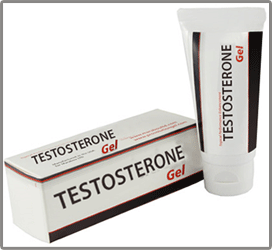 Replacement. These products are Topical transdermal Testosterone Blends that are designed to be absorbed into the skin.
Replacement. These products are Topical transdermal Testosterone Blends that are designed to be absorbed into the skin.
They must be massaged once daily, and absorb fully into the body in 5-15 minutes, depending on the particular product. Gels absorb more quickly than Creams. Always wash your hands thoroughly after using testosterone cream, to avoid the risk of transmission.
Testosterone Patches for Low-T
Testosterone Transdermal patches bear many distinct similarities with Testosterone Gels and Creams. Both are applied to the skin, allowing Testosterone to pass the skin barrier into the bloodstream.
On the other hand, Testosterone is absorbed via Testosterone Patch over the course of a 24 hour period rather than all at once. Some patches can administer Testosterone over a longer period.
Testosterone Patches Vs. Topical Testosterone for Low-T and Pellets
Many people prefer Testosterone Patches because they deliver a slower stream of Testosterone and thus have a lower incidence of most side effects in some circumstances. Individuals with sensitive skin may prefer a different method of Testosterone Delivery.
However, because the patches can cause itching and redness in some sensitive individuals. Patches are not very commonly used, just like pellets.
Testosterone Pellets are inserted under the skin surgically and release testosterone slowly over a long period of time. Testosterone Pellets and patches are in decline, compared to injections and transdermal gels/creams.
Men with children may prefer Testosterone Patches to Topical Testosterone because patches nearly eliminate the already small risk of exposing one's children or loved ones to Testosterone before it is absorbed.
On the other hand, people that are self-conscious about wearing a patch all day would probably prefer some other form of Low-T Treatment.
Testosterone Injections for Low-T
Injectable Testosterone was the original form of Testosterone Treatment and is still available and popular today.
Low-T Injections come in many different formulations, including Testosterone Enanthate, Testosterone Cypionate, and Testosterone Propionate. All of these types of Injectable Testosterone provide the same Bio-Identical Testosterone, the difference is in the esters used to control the rate of Testosterone Absorption by the body.
Unlike Transdermal Testosterone formulations such as Testosterone Patches, Creams, and Gels, Testosterone Injections are absorbed very slowly into the body, generally over the course of three days to two weeks.
The longer the ester chain is attached to the Testosterone molecule, the longer it takes the body to absorb the medication.
Testosterone Injections are great for patients that just want to get their Testosterone and get it over with. Testosterone injections are usually administered once or twice weekly, bi-monthly, or over 7 to 10-day periods.
There's no worrying about remembering to apply a gel or patch every day, and you can just get on with your life. Men that are on edge with needles would likely want to avoid Injectable Testosterone, but the injections are relatively painless, no more painful than a hard pinch at worst.
The vast majority of patients don't find the injections painful enough to suspend therapy. Patients who have a fear of needles should consider alternative approaches of pellets, gel, patches, or cream.
Testosterone Implants (Pellets)
Another form of Testosterone Replacement Is the Testosterone Dermal Implant. This is the ultimate choice for patients that don't want to worry about the responsibility of regular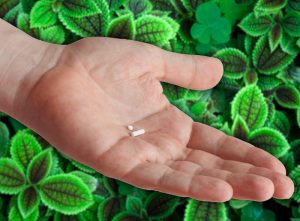 Testosterone Administration and simply want to enjoy the benefits of Testosterone.
Testosterone Administration and simply want to enjoy the benefits of Testosterone.
Testosterone Implants last an incredibly long time, three to five months on a single dose! Testosterone Implants come in the form of tiny pellets of pure Bio-Identical Testosterone which are designed to be slowly absorbed by the body.
Unlike other forms of Testosterone Administration, Testosterone Implants require an outpatient procedure to implant the pellets. It's a simple surgery that only requires a single, small incision, and the pellets are delivered using a medical device known as a trochar.
After the pellets are implanted, the physician will tape the wound shut with medical tape, most of the time no stitches are needed!
Can Women Benefit from Testosterone?
Testosterone is generally considered a medical treatment specifically for men, but this is actually not the case.
Did you know that women produce Testosterone as well? Unlike men, who produce Testosterone from the testes and Adrenal Glands, women produce Testosterone from the Ovaries and Adrenal Glands.
Of course, the Ovaries are designed to produce a much lower output of Testosterone, but women have an acute need for Testosterone in order to preserve their optimal health. Some women who get a hysterectomy completely lose their sex drive and turn to T therapy to give them their desire back.
When Do Women Experience Testosterone Deficiency?
Women generally produce plenty of Testosterone to meet their physiological needs until around the age of Menopause. The female body still produces Testosterone, but the levels drop off significantly.
Some of the symptoms that women experience during Menopause are actually the result of Testosterone Deficiency, rather than changes in the production of female hormones such as Estrogen.
What Are the Symptoms of Low-T Among Women?
Because women use Testosterone differently, the symptoms of Testosterone Deficiency manifest themselves in a different way. Women are particularly affected sexually by Testosterone Deficiency.
When women have too much testosterone (well above healthy replenishment levels) they can experience some side effects like an enlarged clitoris, hair growth, muscle development, and some other symptoms that are commonly associated with men.
Symptoms of Female Low-T
- Depression
- Irritability
- Hot Flashes
- Loss of Bone Mineral Density
- Weight Gain
- Increased Risk of Frailty
- Loss of Sex Drive
- Inhibited Sexual Readiness
You may not realize it, but even though feminine hormones like Estrogen control the female menstrual cycle and the processes associated with that cycle, it is actually Testosterone that plays a major factor in controlling female sexual desire and ability, just like in men.
The release of Testosterone encourages women to be interested in and seek out sexual pleasure. It also allows women to experience that pleasure, and women with Low-T have issues experiencing pleasurable sexual activity and achieving orgasm.
Also, Testosterone readies the body for sexual activity, increasing lubrication and facilitating other changes which influence sexual readiness and satisfaction.
What Other Issues Can Women Experience as a Result of Low-T?
There are a number of long-term health issues that women can be susceptible to directly as a result of Low-T. Because women don't produce as much Testosterone, they are more susceptible to any loss of Bone Mineral Density that results from Hormone Deficiency, meaning that they are far more likely to experience issues with frailty such as Osteopenia and Osteoporosis than men.
Women can also experience an increased risk of Cardiovascular Complications because Testosterone plays an important role in controlling normal cholesterol levels.
What Products Are Available for Women with Low-T?
Testosterone is not FDA-Approved for the treatment of Female Low-T, so there are no Testosterone Patches available for women because they are all designed for men and are thus too strong. Testosterone Injections, creams, and Pellets are an option for women, as are any Testosterone Formulations which are made at a Compounding Pharmacy.

It's time to talk about Low T
When Should I Talk to My Doctor About Low-T?
If you are a man or woman over the age of thirty, and you feel that your desire and passion for life is fading, as well as your sexual desire and quality of life characteristics, there is a real chance you are suffering from Low-T or possibly some other hormone deficiency.
Only a blood test can determine deficiencies.
Our Hormone Restoration Clinic specializes in Hormone Deficiency Treatments such as Testosterone Therapy, Sermorelin Acetate (poor man's HGH), and Human Growth Hormone Injectable Therapy.
We can help you discover whether Testosterone can help you change your life. If you are deficient in multiple hormones, they should be replenished synergistically.
Our Licensed and Board Certified Hormone Professionals specialize in Internal Medicine, Hormone Replacement Therapy, and Endocrinology, and can arrange all of the preliminary tests necessary to assess your Hormone Status.
We can arrange for a routine physical and blood sample from an affiliate physician in your area, and we perform all of our Blood Diagnostic Testing through LabCorp or Quest Diagnostics, these are the two top names in blood testing.
With our help, you can get the treatment you need to overcome Testosterone Deficiency! Call: 1-800-469-3343 to discuss your options concerning Testosterone Replacement Therapy (TRT) for treating Low T.
Contact Us For A Fast And Professional Response

- Sermorelin — HGH Injections Versus Sermorelin and Testosterone Therapy Programs [Last Updated On: February 20th, 2025] [Originally Added On: September 20th, 2020]
- The scientific research benefits of testosterone treatment (TRT) [Last Updated On: September 5th, 2025] [Originally Added On: September 26th, 2020]
- Low-T Associated with Increased Risk of Atherosclerosis in Men with Type-2 Diabetes [Last Updated On: April 17th, 2025] [Originally Added On: October 20th, 2020]
- Health Changes Associated with Low Testosterone and Andropause [Last Updated On: June 15th, 2025] [Originally Added On: November 16th, 2020]
- Five Sports for Living Longer – Life Extension Through Sport [Last Updated On: March 16th, 2025] [Originally Added On: December 2nd, 2020]
- Covid-19 Mortality Risk Correlates With Low-T [Last Updated On: April 16th, 2025] [Originally Added On: December 17th, 2020]
- New Research Explores How Testosterone Influences Your Popular or Unpopular Opinions [Last Updated On: January 16th, 2025] [Originally Added On: February 22nd, 2021]
- Primary Versus Secondary Hypogonadism [Last Updated On: January 5th, 2025] [Originally Added On: March 15th, 2021]
- Testosterone Cypionate Information [Last Updated On: August 24th, 2025] [Originally Added On: May 5th, 2021]
- Testosterone Replacement Therapy May Help Cure Non-Alcoholic Fatty Liver Disease [Last Updated On: January 13th, 2025] [Originally Added On: June 5th, 2021]
- Hydraulic Fracturing: Another Environmental Pollutant That Affects Your Testosterone Levels [Last Updated On: January 7th, 2025] [Originally Added On: July 11th, 2021]
- Can Low Testosterone Be Cured? [Last Updated On: January 17th, 2025] [Originally Added On: September 5th, 2021]
- Low Testosterone – A Possible Link to Rheumatoid Arthritis Risk? [Last Updated On: January 21st, 2025] [Originally Added On: February 12th, 2022]
- The (Surprising) Necessity for Estrogen in Men [Last Updated On: January 22nd, 2025] [Originally Added On: March 1st, 2022]
- Anti-Aging Benefits from Hormone Balance [Last Updated On: January 18th, 2025] [Originally Added On: March 22nd, 2022]
- Male Testosterone Levels Have Dropped by Half - Fact or Myth? [Last Updated On: August 11th, 2025] [Originally Added On: May 14th, 2022]
- Tlando is on the Market – Oral Testosterone Replacement Therapy [Last Updated On: January 20th, 2025] [Originally Added On: June 9th, 2022]
- Tlando Low-T Treatment - A Safe and Effective Pill for Testosterone Deficiency [Last Updated On: August 17th, 2025] [Originally Added On: June 25th, 2022]
- Fatigue and Lack of Sexual Interest: Could it be Male Menopause? [Last Updated On: January 25th, 2025] [Originally Added On: June 27th, 2022]
- The Power of Testosterone—Improving Memory in Diabetics [Last Updated On: August 16th, 2025] [Originally Added On: July 12th, 2022]
- Kyzatrex Achieves FDA Approval—A Brand New Oral Testosterone Treatment [Last Updated On: August 18th, 2025] [Originally Added On: August 13th, 2022]
- How Testosterone and Social Context Influence Behavior [Last Updated On: August 30th, 2025] [Originally Added On: December 11th, 2022]












